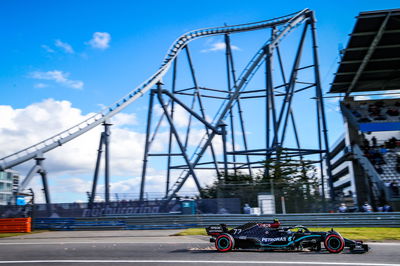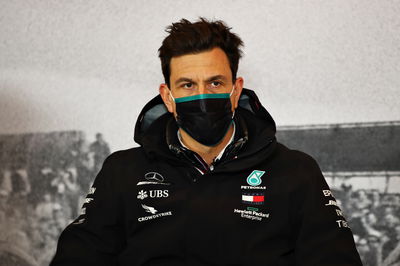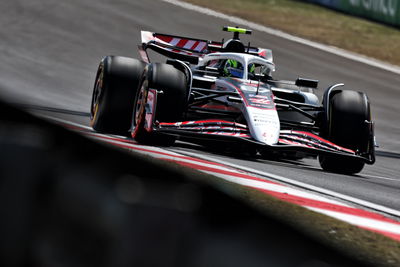Is less practice the way forward for F1 after closest qualifying of 2020?

Formula 1 was provided a glimpse of the impact of what reduced running might mean at the Eifel Grand Prix, with fans at the Nurburgring treated to the closest qualifying session of the season so far.
Valtteri Bottas came out on top of a thrilling three-way fight for pole between Mercedes teammate Lewis Hamilton and Red Bull’s Max Verstappen to top a dramatic qualifying session in Germany.
Verstappen was the quickest driver after the first runs in Q3 by 0.086s but was outpaced by Hamilton, before Bottas usurped the pair with a sublime last-gasp effort to take pole by 0.256s.
The Dutchman ultimately ended up 0.293s adrift, marking the closest the dominant Mercedes team has come to being beaten in qualifying in 2020.
F1’s first visit to the Nurburgring in seven years has ended up being compacted into an unplanned two-day schedule after heavy fog forced the cancellation of Friday’s two practice sessions.
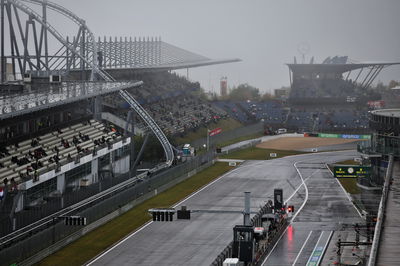
The skies cleared in time for final practice on Saturday morning but temperatures were particularly cold, struggling to get above 10 degrees centigrade. As a result, the drivers were left with just one hour to get to grips with a ‘green’ circuit ahead of qualifying.
F1 is due to hold a two-day race weekend at Imola later this year as the championship looks at possible changes to its format in future. A single, 90-minute practice session will be held ahead of qualifying on Saturday, before the race on Sunday at the former San Marino Grand Prix venue.
But the unpredictable mid-October weather in the Eifel mountains fast-forwarded F1’s experiment and provided the teams and drivers with an unexpected challenge.
After taking his third pole of the season, Bottas suggested that a permanent change to give teams less time to perfect the set-up and handling of their cars would not be a bad idea for the sport.
“Currently in a normal weekend I feel like there is too much practice,” The Finn explained. “Everyone finds their ways on set-ups and optimal things in terms of driving and the car set-up.
“But if there would be a bit less practise, maybe some teams can get it right, some drivers can get it right and some don’t. So I’d kind of like it with a bit less practice.
“It’s so difficult to say a number but no doubt the more you have practice, you’re getting all the fine details right,” he added.
“Especially Friday, you have the whole night between the sessions to look at things and learn about things from the car and driver. So I think with more practise we’d have been a tiny bit quicker.”
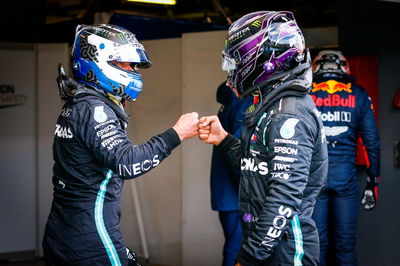
Verstappen echoed Bottas’ comments about the laptime that can be gained from overnight analysis following Friday practice but believes the lack of running did help to slightly “even out '' the pecking order.
“When you have little issues or whatever, you can go over it through a whole night,” he said. “You can look back at it in the factories as well, work in the simulator and stuff. But overall like Valtteri said, we have a lot of practice so you also take your time to settle in.
“Now, you know that it’s only one session, you’re straight away on it I think a bit more than what you would normally do in first practice or whatever. So, it evens out a bit, but there are little things which can always be improved.”
A condensed weekend format might not always guarantee a close or exciting result, but there would certainly be an added element of intrigue, while greater emphasis would be placed on set-up direction and tyre choices.
Indeed, it would create some variability and require drivers to dial themselves in quickly and adapt to varying conditions at the circuit, potentially opening the door for mistakes and the odd upset.
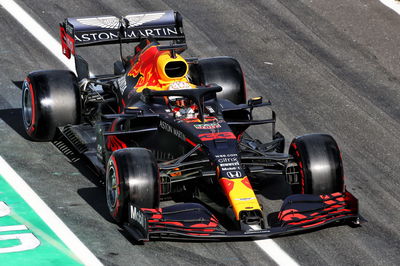
Mercedes F1 team boss Toto Wolff said he would back such a proposal as he feels a two-day format would benefit the “most innovative team”.
“I like it a lot because the testing you have and the less data collection, the more you will create variability,” the Austrian said. “It’s a little bit, not the strongest who wins, but the most adaptable.
“The most innovative team and the driver that is able to learn the track and the tyres as quickly as possible. If that was a proposal, they have my vote.”
While the entertainment value may be boosted, there is also the consideration of having less track action to sell to broadcasters and paying spectators that enjoy turning up to see the cars running on Fridays, some of which cannot afford a full weekend ticket. Would a move to a two-day format inflate ticket prices further?
“It’s a question for the promoters because they are selling tickets on the Friday and many people are not able to afford the weekend tickets and they still get to see the F1 cars on the Friday,” Wolff added.
“That is something which needs to be considered when developing that idea, but from a sporting point of view, I find it good.”
Renault’s Daniel Ricciardo qualified sixth and ended up less than a second down on Bottas’ benchmark time.
The Australian said he would be open to switching up the weekend format, admitting that some events “feel a bit dragged out”.
“I am not against it,” Ricciardo said. “If someone wants my real opinion, and I would have to put everything on the table - pros and cons for a three day weekend, and pros and cons for a two day weekend - but in my head I feel like a two day is quite cool.
“It is always good to be a three-day as far as Friday media and everything else. I feel that it could open up an opportunity for either, I be careful what I say, more races or more time for us to prepare away from the track with training or other commitments that we have.
“Some weekends do feel a bit dragged out, so today weekends could be cool. But maybe the cool places like Austin and this, let’s have five-day weekends!”
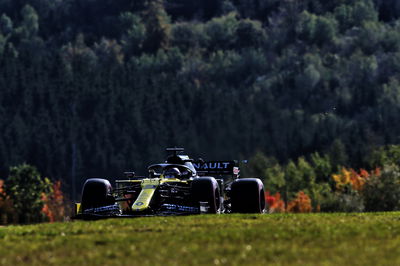
AlphaTauri’s drivers were also fans of the reduced running, with Daniil Kvyat saying he has never felt the need for Friday practice.
“My first impression of today it's enough [running],” the Russian explained. “Maybe we will do two hours of practice on Saturday, two hours instead of one hour, and perfect!
“You know, we save one day for everyone, enough running, enough understanding and... for me it's more than enough you know. One or two-hours practice to be completely up to speed. I don't need more than that personally.
“I never had big issues learning a new track,” he added. “I always remember, from junior categories I managed to jump in and be there straightaway. I had never issues. I never needed many laps to understand.
“And I think it's a good thing for everyone, for all of us to... don't really [do more practice], so there is no time to find the perfect setup, perfect settings. You just drive what you have, and get along with it.
“Everyone seems to find the limit very fast. And today everyone was on it straightaway.”
Pierre Gasly agreed with his teammate and said he likes the prospect of a “more intense” challenge, saying that a lack of practice time puts more pressure on teams to get everything right in their preparations.
“I think it’s quite good,” the Frenchman said. “I think it puts a bit more pressure on all of us as a team to get everything right as you have one session and then every change you make you’re going blind into quali.
“It’s quite a big risk and at the same time it means preparation is even more important. It’s a pretty good challenge, more intense, I think the weekend more compacted on my side I like it, it’s something I’d like to see in the future.”
According to Ferrari’s Charles Leclerc, who sealed a brilliant fourth on the grid, less running at the Nurburgring has left teams and drivers heading “into the unknown” on Sunday.
“It’s going to be a very interesting race,” Leclerc said. “We all go a bit into the unknown.
“We haven’t done any high-fuel runs yet, so it’s going to be important to take care of those tyres and try to anticipate as much as possible which axle will degrade first. This is where I will focus tomorrow.”
Whether it will have any impact on the race-day show, or have the desired effect in improving the spectacle if deployed as a regular feature in the future, remains to be seen.
